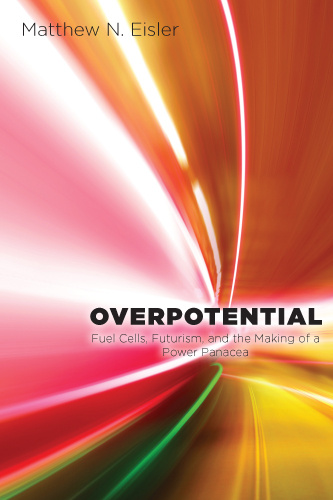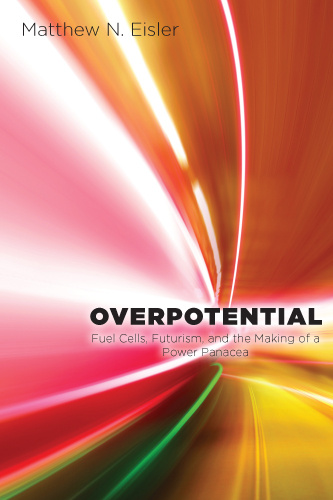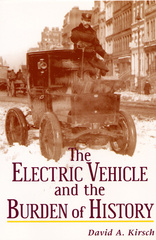Overpotential
Fuel Cells, Futurism, and the Making of a Power Panacea
It sounds so simple. Just combine oxygen and hydrogen in an electrochemical reaction that produces water and electricity, and you’ll have a clean, efficient power source. But scientists have spent decades—and billions of dollars in government and industry funding—developing the fuel cell. There have been successes and serendipitous discoveries along the way, but engineering a fuel cell that is both durable and affordable has proved extraordinarily difficult.
Overpotential charts the twists and turns in the ongoing quest to create the perfect fuel cell. By exploring the gap between the theory and practice of fuel cell power, Matthew N. Eisler opens a window into broader issues in the history of science, technology, and society after the Second World War, including the sociology of laboratory life, the relationship between academe, industry, and government in developing advanced technologies, the role of technology in environmental and pollution politics, and the rise of utopian discourse in science and engineering.
Eisler’s book is more than a succinct history of the fuel cell itself. Just as important, it traces the history of the often utopian ideas behind this technology. This well-written and carefully researched study...helps the reader understand why the fuel cell has yet to fulfill its glittering promise. Overpotential provides a useful review of one technology whose various futures so far have failed to arrive.
A very fine book. Overpotential unpacks the more complex, and infinitely more interesting, story of the intertwining of technological developments concerning electrical power and the search for new sources of cheap, safe, efficient electricity.
In this extensively researched and detailed book, Eisler provides the 'rest of the story' of fuel cells and fuel cell applications progress in the 20th century. Highly recommended.
In Overpotential, Matthew Eisler demonstrates that historians can and should contribute to the energy debate ... A major strength of the book is that it aims to — and largely does — bridge the gap between the fuel cell as history of technology and as present-day engineering and policy challenge.
'Joining scholarly analysis with engaging narrative, Eisler exposes the perils of technology policy and reveals how a cult of innovation can trump socially sound energy policy in the United States.'
Eisler's historical treatment of the engineering subject matter in Overpotential provides a perspective that is often lacking in the current discourse on fuel cells.
'Exaggerated claims made on behalf of new energy conversions are commonly met with uncritical acceptance. Eisler provides a much needed corrective, a well-informed and critical explanation of why fuel cells have not become a miraculous energy source.'
MATTHEW N. EISLER is a historian of science and technology, and is a lecturer at the University of Virgina. His research focuses on the political economy, culture, and discourse of science-based innovation, particularly in the energy and transportation sectors.
Acknowledgments
Introduction: Fuel Cell Futurism
1 Device in Search of a Role
2 Military Miracle Battery
3 Fuel Cells and the Final Frontier
4 Dawn of the Commercial Fuel Cell
5 Fueling Hydrogen Futurism
6 Green Automobile Wars
7 Electrochemical Millennium
Conclusion
Notes
Index








